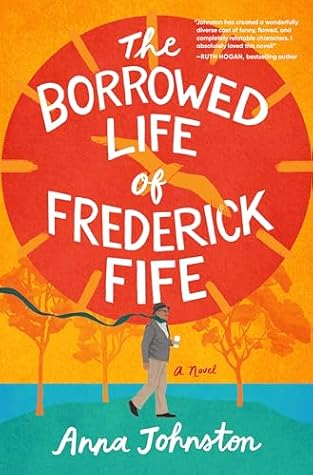More on this book
Community
Kindle Notes & Highlights
Today’s mental cacophony was too loud even for the river.
Fred always took great joy in meeting new people, but usually they were alive.
An oval-shaped head framed a wide crooked grin that, with the balding scalp, gave the impression of a cracked watermelon.
Late-stage dementia was like an empty house that the tenant had checked out of.
Albert deserved better care, but Fred always gave people the benefit of the doubt; he knew how busy the carers were.
Grief is often invisible to the outside world—Fred was like still water whose reflection mirrored the sun but concealed dark and murky depths underneath. He often wondered how his body still held together when his soul had broken into a million pieces.
Was she right? Was cancer less painful than grief?
Poor Mum. Fred knew the signs had been there for a while, but to forget your own son—it was as if she had died, or he had. Like one of them no longer existed. From that day on he realized it was possible to grieve a living person.
Cruelly the body remained, a taunting illusion, making you believe they were right in front of you when in fact they were possessed by an imposter, filled with rage, grief or panic. A torturous show for the audience of loved ones.
Fred had learned all the tips and tricks over the years: never argue, go with the flow; never shame, instead distract; never condescend, always encourage. All the while, his heart was breaking.
His stomach let out a disagreeable noise as if speaking on behalf of his conscience.
She couldn’t mask her pain from her kids. Instead, disappointment came in on the soles of her feet and she walked it through the house like dog poo, trampling it into the carpet and across the tiles.
It was funny to think how older people were often clumped together regardless of age. Many folks would consider nursing home residents to be of the same generation; yet Ruby was old enough to be his mother.
Though she’d never know, it was a tiny scrap of integrity to which he could cling.
Hannah looked at him, studying his every detail like a mother seeing her newborn baby for the first time. This man who was not her father, not even a relative, but someone whom she had inexplicably grown to love with all her heart.
People over eighty are underrepresented in literature, so I wanted to create not just an elderly character, but a much-needed elderly hero who encourages people to see the good in humanity.
Doppelgängers and cases of mistaken identity have always fascinated me. I began developing the idea of one man being able to redeem another man’s life, even after death. The story grew quickly from there.
I would also like to acknowledge all those who have been touched by the issues my characters face—grief, dementia, social isolation, cancer and addiction. To you, I send my love and strength.


